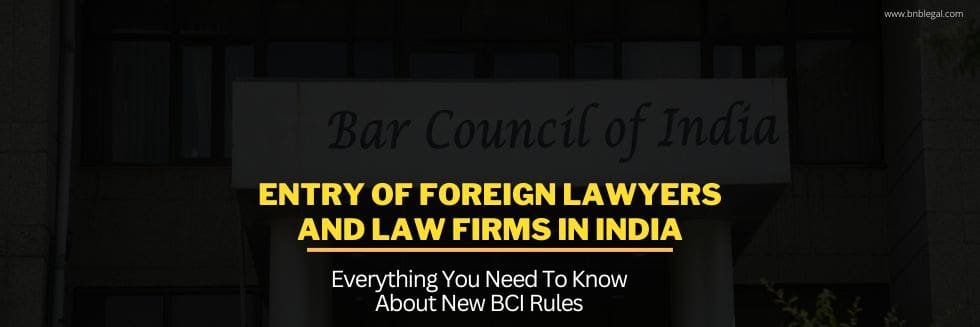– In this article, some of our best advocates for Service Writ Matters in Chandigarh bring to light vital aspects of ad hoc appointment: rights of an Ad Hoc employee. For any clarification, you can write to our best service matter advocates in Chandigarh.
Meaning of Ad Hoc
Ad hoc is a Latin phrase which means “for this”. Which means something ‘Made’ or ‘Happening’ only for a particular purpose or need, not planned before it happens. Therefore, Ad hoc means things done for a particular reason or for a specific situation. For example – colleges calling for guest lecturers or guest faculty to teach the students any particular subject or topic, lawyers teaching the procedural laws in college for their forte to teach on the practicality basis. Now here point to be considered is that the lawyer is not the part of the permanent faculty of the university but rather has a temporary appointment, which may be for a term or specific lectures.
Hence, ad hoc appointment is an appointed for a short period. The appointment is made for an existing post for a short period of time – a month or more in lieu of the person rightfully eligible for manning the post. On return/ appointment of the eligible person, or with the lapse of time in the contract, the ad hoc employee is automatically terminated.
it is to be noted that the post for Ad Hoc Appointment may call for different eligibility standards than regular appointment.
Difference Between Ad Hoc Appointment and Temporary Appointment
Ad Hoc Appointment:
The ad-hoc appointment is that which is made out of the eligible candidates to be engaged for a specifically created post or purpose, or for a solution to immediate problems or to serve immediate needs. These appointments are made when the management is not in a position to fill such vacancies, permanently for want of certain complications or due to non-fulfillment of the required formalities well in time or it’s the need of the hour for speedy functioning and disposal of a situation. For example- In December 2012, the Central Government appointed a judicial committee headed by J. S. Verma, a former Judge of Supreme Court, to suggest amendments to the Criminal Law, to sternly deal with sexual assault cases. Now, on perusal, we can say that such appointment is created for a specific purpose and the period for which the Committee or Commission is appointed, goes catering to that specific purpose.
Temporary Appointment:
On the other hand, Temporary Appointment is that which is made on temporary basis against a posts for a specific or short period by recruitment from outside, if Rules of the organization permit such appointment, or on local basis out of the candidates of subordinate services, to fill in the vacancies until the post in matter is made permanent. When regular appointments cannot be made as per the rules, in order to fill in the gap, temporary appointments are made. Temporary posts are created for a limited time to meet the needs of the organization on a temporary basis.
Legal & Constitutional Status of Ad Hoc Appointment:
The Indian Constitution guards the various employments generated by the Government by laying down the procedure to generate and protect the same. Besides, the fundamental right to equality – of opportunity, is the backbone and the essential feature of the Constitution. The Constitution also provides for proactive actions to ensure that unequal are not treated as equal and any employment has to be in terms of the constitutional scheme laid down.
The ad hoc employees basically stand at the lowest grade as against a permanent, quasi-permanent and temporary employee. It has been held that an ad hoc employee does not get the right to hold the post or to continue in employment endlessly in comparison to a regular employee. The ad hoc employees are said to form a different class.
1. Ad Hoc Regularization cannot be seen as a model of recruitment:
Regularization of ad hoc appointments if is to be seen as a new method appointment, it will defy the existing rules, regulations, and procedures established to regulate appointments. It also defeats the effect of the various rules and regulations that apply to a regular appointment. An ad hoc appointee or promotee, therefore, has no absolute or automatic right of regularisation. In Director, Institute of Management Development V. Pushpa Srivastava, it was held that where the appointment is purely on ad hoc basis and is contractual in nature, and any discharge of time the appointment comes to an end, the person holding such post can have no right to continue in the post.
2) Ad hoc appointment to cope up with the contingency:
The regular recruitment should be relied upon while making the various recruitments, while only in a contingency or to fill up the gap for a while an Ad hoc appointment can be made the mode as a stop-gap arrangement in a permanent vacancy. But at the same time, it should be borne in mind that such an arrangement is of a temporary nature and the same should soon be substituted by a regular recruitment.
3) Right to Equality vis-à-vis Ad hoc Appointment:
As it is a settled principle that the rule of law is the core of the Indian Constitution the Court would certainly be disabled and hesitant from passing an order allowing the violation of Article 14 read in the light of Article 16 of the Constitution. Hence, it stands clear that in case of the contractual appointment the appointment comes to an end at the end of the contract, if it is an appointment on daily wages or casual basis the same would come to an end when it is discontinued.
Similarly, a temporary employee could not claim to be made permanent on the expiry of his term of appointment.
4) Fundamental Rights vis-à-vis Ad hoc Appointment:
There is no fundamental right in those who have been employed on temporarily or on a contractual basis to claim that they have a right to be absorbed in service. As these appointments cannot be considered as the rightful holder of the post as this was done just as to fill up the spaces. Since a regular appointment could be made only by making appointments consistent with the requirements of Articles 14 and 16 of the Constitution that means equals to be treated with equality. While in case of the temporary or Ad-hoc appointments this would mean treating unequal’s as equals. It cannot also be relied on to claim a right to be absorbed in service even though they have never been selected in terms of the relevant recruitment rules. The Punjab and Haryana High Court in Faculty Association P.G.I. v Union of India has held that the ad hoc appointees have no right to claim regularisation of their services. However, they are entitled to be considered along with other eligible candidates.
5) Temporary employment vis-à-vis Permanent Employment
It has also to be clarified that merely because a temporary employee or a casual wage worker is continued for a time beyond the term of his appointment, he would not be entitled to be absorbed in regular service or made permanent, merely on the strength of such continuance, if the original appointment was not made by following a due process of selection as envisaged by the relevant rules. Further, the Andhra Pradesh High Court in V.J. Balready v Andhra Bank, ruled that when an ad hoc appointment was made for a particular time and not in accordance with the recommended rules, it is merely a stop-gap arrangement, the appointees have no right to call continuance in service after the expiry of the period of appointment. They are liable to be discharged or reverted to make room for a regular appointee or promotee, pending which, the ad hoc arrangement was resorted to.
It is reiterated that ad hoc appointment is a stop-gap agreement. An ad hoc appointment does not automatically give any vested rights to the appointee to claim continuity in service, till it is regularised. It is only transitory in nature, pending the allocation of employees appointed according to the established rules, regulations and procedure. An ad hoc appointment does not by itself create any right on the ad hoc employee for regular appointment in such a post. But, it is equally true that even though an ad hoc appointee has no right to hold that post to which he is so appointed, he can nevertheless be reverted to his lower nominal post for valid reasons such as his unsuitability to hold the post, the availability of the person holding a lien on the post, selection of a regular incumbent or other exigencies of public service. An ad hoc appointment, though by its nature a risky tenure nevertheless carries a limited right to that extent, and if such an appointee is returned illegally and arbitrarily, he would be entitled to challenge it and seek enforcement of his right.
6) Discharge Would Not Attract Article 311 (2) of the Constitution:
The discharge and reversal of an ad hoc appointee even after an employee has continued for any length of time would not amount to a dismissal or reduction in rank so as to attract Article 311(2) of the Constitution of India, unless it is shown that it was:
- intended to be a measure of punishment
- to cast any stigma
- was otherwise malafide; or,
- it inflicts upon the delinquent civil consequences of a penal nature.
Conclusion:
It is a settled law that having made rules of recruitment to various services under the State or to a class of posts under the State, the State is bound to follow the same and to have the selection of the candidates made as per recruitment rules and appointments shall be made accordingly. Where the infringement of fundamental right guaranteed under Article 16 of the Constitution of India, to be considered for promotion is compromised, it cannot be said that because the appointments were made on ad hoc basis, the eligible person has ‘no right’ to be considered for promotion. Whatever be the nature of appointment i.e. permanent, temporary or ad hoc, a person eligible for promotion has a right to be considered. Rights of an ad hoc employee entitle him to twin protections:
- Minimum pay-scale protection.
- Continuance till regular incumbents join.
- Maternity leaves and benefits.









